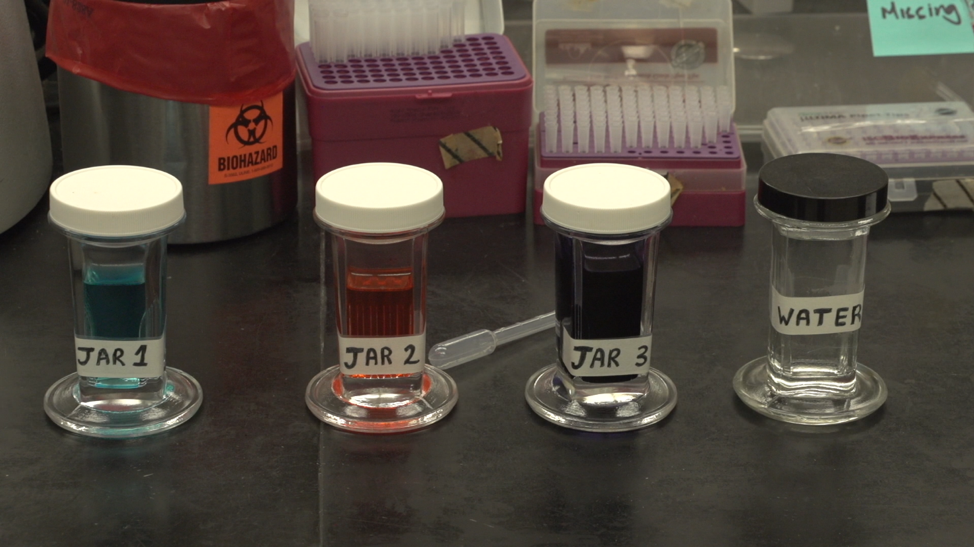
August 2018
Staining Cytology Samples Prior to Submission to KSVDL
By Dr. Adi Naor
Staining a cytology slide before submission is good practice to make sure you have a representative sample. Here are some tips for this procedure:
- Make sure your sample on the slide is dry.
- Stain only one slide.
- Always submit 2-4 unstained slides with the stained slide
- Don’t stain the best slide.
- Stain cytology slides in uncontaminated jars.
- Separate these jars from the stain used for infected samples, such as ear cytology.
The most recommended stain to use is a Diff Quick™ stain as it is easy and fast to perform.

Jar 1- contains methanol (a fixative agent)
Jar 2- contains eosin dye (orange in color)
- Eosin dye stains bases in red-pink color
Jar 3 – contains azure dye (dark blue-purple in color)
- Azure dye stains acids in purple-blue (basophilic) color
Jar 4 - contains water to wash the slides after jar 3
The staining procedure:
1) Make sure the sample on the slide is dry.
2) Dip the slide in each jar between six-10 times (10-15 seconds in each solution).
For thick samples the dipping time might be slightly longer, mainly in jar 3.
3) Wash the slide with water after jar number 3 ONLY
4) Dip the slide in the water jar
5) Never wash the slide in between the staining process.
6) Alternative to Jar 4:
7) Slide may be washed with low flow of water
8) Put the slide aside and let the stain dry before evaluating
Things to NEVER do:
1) Never use heat to accelerate drying of a cytology slide.
- Dry at room temp
2) Don’t stain the best slide you have
3) Don’t stain all slides, always submit one stained, and two to four unstained slides.
4) Don’t start the stain process before the slide is dry
5) Don’t change the order of the solutions
6) Never wash a slide with water between jars one to three
For a help with this procedure see our video:
Staining Cytology Samples for Evaluation Prior to Submission
For help with slide evaluation after staining see our video:
How to Evaluate Your Stained Cytology Slides
If you have questions, please contact KSVDL Client Care at 866-512-5650 or clientcare@vet.k-state.edu.